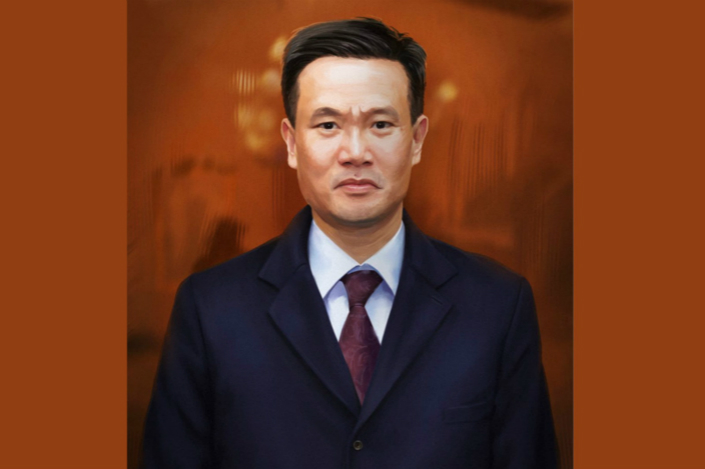10 Years of Caixin: Billionaire's Oil Empire Brought Down by Risky Financing

Editor’s note:
Since its founding 10 years ago, Caixin has been a witness to China’s social and economic transformation and has worked to uncover the stories and key people behind this process, which has required the persistent, professional pursuit of truth.
To mark our 10th anniversary, we are taking a look back at 10 of our most important original investigative reports, which led the way in Chinese media and uncovered the twists and turns of the country’s ongoing modernization.
These stories include the tale of a corrupt top security official, a barbarian at the gate, a fugitive tycoon, the industrial safety failures that led to more than 170 deaths in a series of fatal blasts and the environmental destruction wrought by the pursuit of economic growth at any cost. We will be publishing one story of the series each day through Nov. 11.
The detention of secretive tycoon Ye Jianming was among the most closely watched sagas in China through 2018 as it set off a downward spiral of his business empire, CEFC China Energy, and a vast number of affiliated companies.
The fall of Ye and CEFC China became a snapshot of how Chinese companies used opaque business networks and highly leveraged financing arrangements to fuel aggressive overseas expansion and how such practices collapsed amid a government crackdown on risky investments.
CEFC China once raised eyebrows among international investment markets by proposing to take a $9 billion stake in Russia’s state-controlled oil major Rosneft, a deal that collapsed after investigators starting probing Ye’s activities for alleged financial crimes.
Ye, 42, set up CEFC China and transformed it in less than 10 years from a little-known fuel trader to a rapidly expanding oil and finance giant with assets in Europe, the Middle East, Central Asia and Africa. Ye claimed for himself extraordinary titles such as economic policy adviser to Czech President Milos Zeman and “special honorary adviser” to the UN General Assembly.
As his business expanded, Ye mostly stayed out of the public eye. Even his most senior executives said they had little chance to meet him in person. Caixin reporter Ji Tianqin made several attempts to interview Ye and eventually sat down with the elusive businessman in 2017 before his troubles started.
“You are very tricky,” Ye said during the interview at CEFC China’s headquarters in Shanghai. “We don’t like it, but I understand it. Otherwise I wouldn’t meet you.”
Caixin’s investigation of Ye and his business was not easy. There was scarce public information about his background and how he initially acquired the money needed to invest in and expand CEFC China. Caixin’s attempts to gather as much information as possible on Ye and his business partners were met with resistance from CEFC China.
A breakthrough was made in early 2017 when Ji contacted Zhang Qi, a former business partner of Ye’s. In a four-hour interview, Zhang outlined how CEFC China grew into an energy-to-finance conglomerate and filled in the missing parts of Ye’s early business life.
While talking with Ji, Ye said he kept a low profile to avoid mingling too much with others. But his attitude showed political savvy.
Though privately owned, CEFC China had layers of Communist Party committees that are usually the feature of state-owned enterprises. It also hired many former military officers and party cadres, underscoring its supposed ties to Chinese officials. All of this helped CEFC China to portray itself as a company with state backing and to therefore win trust in overseas deals.
Caixin’s investigation found that CEFC China used complicated trade arrangements involving affiliated companies to obtain credit and expand its leverage. Such practices fall in a regulatory gray zone. CEFC China also partnered with a number of state-owned enterprises to facilitate trade finance based on inflated deals, Caixin found.
Although Ye denied any wrongdoing in the 2017 Caixin interview, doubts over CEFC China’s business practices were never adequately resolved. After Ye was placed under investigation, CEFC China and its subsidiaries quickly fell into debt problems.
Contact reporter Han Wei (weihan@caixin.com)
Read more of Caixin’s anniversary series:
10 Years of Caixin: Popping Anbang’s Bubble
10 Years of Caixin: Star Chinese Fund Manager Arrested After 2015 Market Rout
10 Years of Caixin: Mapping Zhou Yongkang’s Vast Web of Graft
10 Years of Caixin: The Army Logistician Who Lined His Own Pockets
10 Years of Caixin: Exposing Fugitive Tycoon Guo Wengui
10 Years of Caixin: Baidu’s Dangerous Ad Game
10 Years of Caixin: Tianjin’s Lethal Explosions
10 Years of Caixin: The Environmental Cost of Land Reclamation

- PODCAST
- MOST POPULAR





